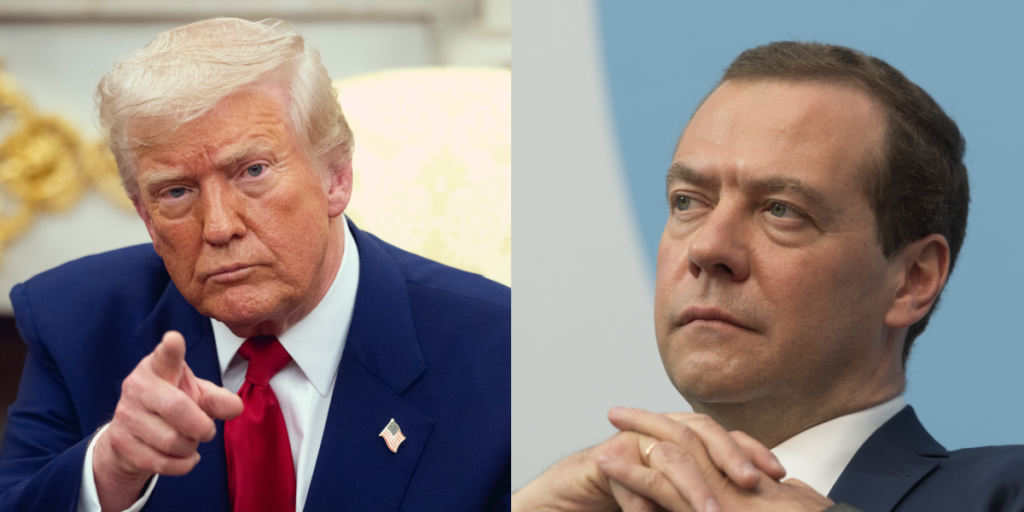Tensions between Washington and Moscow have flared after the Trump administration announced sweeping sanctions on Russia’s two biggest energy firms, Rosneft and Lukoil.
Others are reading now
The move, meant to pressure Moscow over the war in Ukraine, triggered sharp responses from top Russian officials.
Words of war
Former Russian president Dmitry Medvedev accused the United States of crossing into open hostility, describing Washington’s latest actions as a declaration of war.
“The United States is our enemy, and their talkative ‘peacemaker’ has now fully embarked on the path of war with Russia,” Medvedev wrote on Telegram, referring to President Donald Trump.
He said the canceled Budapest summit between Trump and Vladimir Putin, together with the sanctions, proved that “Trump has completely aligned himself with crazy Europe.”
While the Kremlin’s Security Council deputy chairman delivered fiery remarks, the Russian Foreign Ministry struck a softer tone, saying the US measures were “extremely counterproductive” for peace efforts in Ukraine.
Also read
Sanctions and cancellation
US officials said the sanctions were imposed because of “Russia’s lack of serious commitment to a peace process that would end the war in Ukraine.”
The decision came a day after Trump called off his planned meeting with Putin in Budapest. The American leader said he still had a “very good relationship” with the Russian president but felt the timing was wrong.
“It didn’t seem like we were going to get where we needed to get. So we canceled it. But we will do it in the future,” Trump told reporters, adding that the sanctions might be lifted if Moscow showed readiness to cooperate.
Energy giants targeted
The new measures, issued by the US Treasury’s Office of Foreign Assets Control (OFAC), effectively blacklist Rosneft and Lukoil — companies responsible for nearly half of Russia’s crude exports, according to Bloomberg.
Rosneft, headed by Putin ally Igor Sechin, and privately owned Lukoil together export around 3.1 million barrels of oil per day.
Also read
Rosneft alone accounts for nearly half of Russia’s oil output, representing about six percent of global production.
In its statement, OFAC described Rosneft as “a vertically integrated energy company specializing in exploration, extraction, production, refining, transportation and sale of oil, natural gas and petroleum products.”
Lukoil, it said, engages in similar operations in Russia and abroad.
Europe joins in
Just hours after Washington’s move, the European Union approved its own 19th package of sanctions against Russia, following Slovakia’s withdrawal of a veto.
The measures will phase out imports of Russian liquefied natural gas by January 2027.
Also read
The EU’s latest package also targets Russian banks, Chinese and Indian companies accused of helping Moscow bypass restrictions, and 117 oil tankers from Russia’s “ghost fleet” used to evade price caps.
A new mechanism will also restrict the movement of Russian diplomats inside the bloc.
“The EU is restricting the movement of Russian diplomats to counter attempts at destabilization,” said EU foreign policy chief Kaja Kallas. “It is becoming increasingly difficult for Putin to finance this war.”
Moscow’s defiance
Russia dismissed the impact of the European measures. Foreign Ministry spokeswoman Maria Zakharova said the sanctions would harm Europe more than Russia.
“The sanctions they are imposing against Russia primarily affect the European Union. Brussels’ ability to expand sanctions against our country has been largely exhausted,” she told reporters in Moscow.
Also read
Zakharova reiterated that Russia’s goals in Ukraine remained unchanged and that the roots of the conflict must still be addressed for peace to be achieved.


